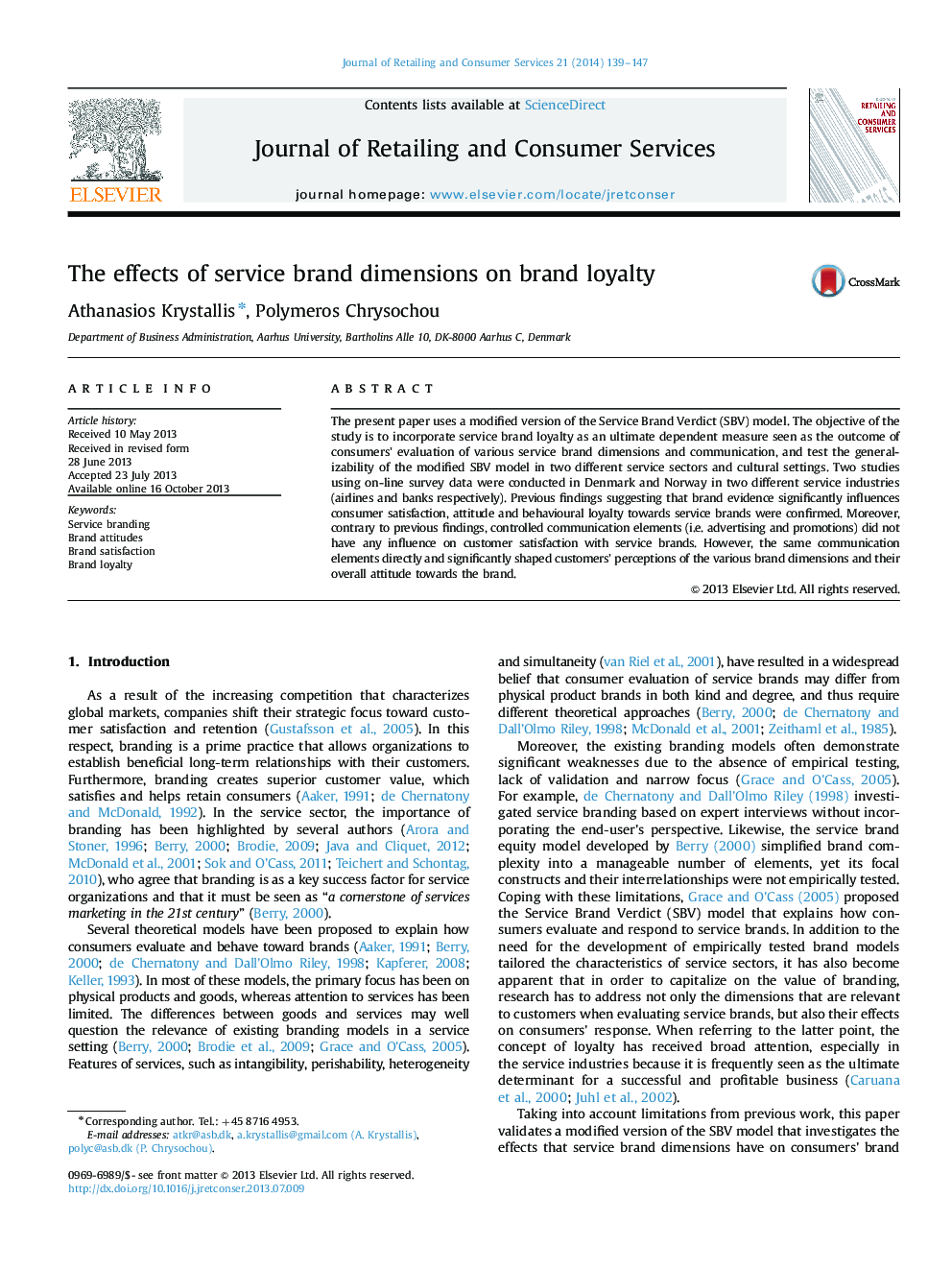| Article ID | Journal | Published Year | Pages | File Type |
|---|---|---|---|---|
| 1028782 | Journal of Retailing and Consumer Services | 2014 | 9 Pages |
•We validate a modified SBV model.•We incorporate loyalty as the ultimate depended variable.•Results corroborate past findings but bring forth the need for contextual adaptations.•For instance, brand hearsay does not have any direct effect on satisfaction.•Further research should incorporate moderators such as familiarity and involvement.
The present paper uses a modified version of the Service Brand Verdict (SBV) model. The objective of the study is to incorporate service brand loyalty as an ultimate dependent measure seen as the outcome of consumers' evaluation of various service brand dimensions and communication, and test the generalizability of the modified SBV model in two different service sectors and cultural settings. Two studies using on-line survey data were conducted in Denmark and Norway in two different service industries (airlines and banks respectively). Previous findings suggesting that brand evidence significantly influences consumer satisfaction, attitude and behavioural loyalty towards service brands were confirmed. Moreover, contrary to previous findings, controlled communication elements (i.e. advertising and promotions) did not have any influence on customer satisfaction with service brands. However, the same communication elements directly and significantly shaped customers' perceptions of the various brand dimensions and their overall attitude towards the brand.
